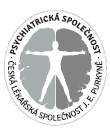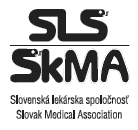Česká a slovenská psychiatrie

Časopis
Psychiatrické společnosti ČLS JEP
a Psychiatrickej spoločnosti SLS
původní práce / original article
DENIBAN V LÉČBĚ DYSTYMIE
DENIBAN IN THE TREATMENT OF DYSTHYMIA
Čéšková E.
Psychiatrická klinika LF MU a FN Brno,
přednostka prof. MUDr. E. Čéšková, CSc.
přednostka prof. MUDr. E. Čéšková, CSc.
SOUHRN
Dystymie je chronická mírná deprese, která snižuje kvalitu života. V poslední době se ukazuje, že úspěšné v léčbě deprese mohou být i dopaminergně působící látky. Z těchto je v pro léčbu dystymie v ČR registrován amisulprid v malých dávkách (preparát Deniban). S Denibanem byla provedena u dystymie prospektivní, otevřená, observační studie. Zařazeno bylo 510 nemocných, 90 % léčených dokončilo čtyřměsíční studii a 87 % nadále hodlalo s léčbou pokračovat. Již po prvním týdnu došlo k signifikantnímu snížení symptomatologie (hodnoceno dle MADRS) a tento trend byl udržen do konce studie. U 83,4 % došlo k velmi výraznému nebo značnému zlepšení. Deniban byl dobře snášen, vedlejší účinky se vyskytly u 59/510 (11,57 %) léčených, nejčastěji se vyskytovaly: galaktorea u 11/510 (2,16 %), bolest hlavy u 7/510 (1,37 %), ospalost u 5/510 (0,98 %), nauzea a xerostomie 5/510 (0,98 %) a mastody-nie u 4/510 (0,78 %). Tyto výsledky ukazují, že dopaminergní látky mohou být lékem volby u dystymie.
Klíčová slova: dystymie, chronická mírná deprese, deniban.
SUMMARY
Čéšková E.: Deniban in the Treatment of Dysthymia
Dysthymia is a chronic, mild depression with an impact on the quality of life. Recently it has been shown that dopaminergic agents could be successful in the treatment of depression. Amisulpride which has in low doses (Deniban) dopaminergic activity is registered for the treatment of dysthymia in Czech republic. A prospective, open observational study of dysthymia treatment with Deniban has been performed. Totally 510 patients suffering from dysthymia were included. Ninety % of the patients finished all 4 months of the study and 87% of the treated wanted to continue with Deniban. A significant reduction of symptoms (according to MADRS) has been observed after one week and this trend has continued till the end of the study. In 83.4% of patients there was a marked improvement. Deniban subjects was well tolerated, side effects were found in 59/510 (11.57%) of the treated. The most frequently observed symptoms were galactorrhea in 11/510 (2.16%), headache in 7/510 (1.37%), somnolence in 5/510(0.98%), both nausea and xerostomia in 5/510 (0.98) and mastodynia in 4/510 (0.78%). These results show that dopaminergic drugs may be drugs of choice in dysthymia.
Key words: dysthymia, chronic mild depression, deniban.





